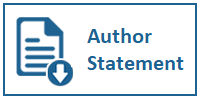HOW TO FOSTER EMPLOYEE PERFORMANCE? THE ROLE OF ORGANIZATIONAL CULTURE AND WORK ETHOS WITH MOTIVATION AS INTERVENING VARIABLES
DOI:
https://doi.org/10.31937/manajemen.v13i2.1960Abstract
Abstract - Employee performance of Bank Syariah Indonesia (BSI) after the merger is an important thing to study because the three banks that are the origin of these banks have different work cultures. This study analyses organizational culture and works ethic on employee performance through work motivation as an intervening variable. The data collection method was carried out by distributing questionnaires to Bank Syariah Indonesia (BSI)employees in the Semarang office branch. The sample used was 41 respondents with a saturated sample technique. The data obtained were then processed using SPSS. The data analysis was used as path analysis. This study showed that organizational culture has a positive and not significant effect on employee performance. Work ethic has a positive and significant effect on employee performance and works motivation. Organizational culture positively and significantly affects work motivation. Work motivation has a positive and significant effect on work motivation and employee performance. Other results showed that work motivation mediates organizational culture's influence on employee performance, and work motivation mediates the effect of work ethic on employee performance. This research is expected to be additional material for banks to improve quality in terms of employee performance. It is excellent, and it must be even better, based on this research in the future.
Keywords: Employee Performance; Organisational Culture; Work Ethic; Work Motivation
Downloads
Downloads
Published
How to Cite
Issue
Section
License
Authors retain copyright and grant the journal right of first publication with the work simultaneously licensed under a Creative Commons Attribution-ShareAlike International License (CC-BY-SA 4.0) that allows others to share the work with an acknowledgement of the work's authorship and initial publication in this journal.
Authors are able to enter into separate, additional contractual arrangements for the non-exclusive distribution of the journal's published version of the work (e.g., post it to an institutional repository or publish it in a book), with an acknowledgement of its initial publication in this journal.















